Stressed Employees Appreciate Employer Response to Improve Overall Wellbeing: Many Value Benefits More than Income Adjustments
WASHINGTON – October 7, 2021 – The 2021 Workplace Wellness Survey, conducted by the Employee Benefit Research Institute (EBRI) and independent research firm Greenwald Research, finds that 76% of employees favorably view their employers’ efforts to improve their overall well-being. Employees recognize these initiatives, as one in three employees acknowledge increased focus by their employers to improve emotional, physical, and financial wellbeing.
The Workplace Wellness Survey examines worker attitudes towards employment-based benefits in the workplace, as well as a broad spectrum of financial wellbeing, employment-based health insurance, and retirement benefit issues.
More than half of employees, 51 percent, are extremely/very satisfied with their benefits package, with 62 percent stating that they are satisfied with their employment-based retirement savings plan and 63 percent being satisfied with their current health insurance plan. Most employees are satisfied with their benefit plans and do not want to trade their benefits with their wages.
“Seven in ten employees feel the employer has a responsibility to ensure the health and financial security of employees,” said Lisa Greenwald, CEO of Greenwald Research. “Since this is consistent with last year, it raises a thought that employees expect a strengthened social contract as the result of the pandemic.”
This year, just over three in ten (31 percent) feel their employer’s efforts to improve their overall well-being has increased, a modest increase from last year (28 percent). Six in ten (60 percent) say it stayed the same, holding steady from 2020. Employees rate their employers’ efforts positively, with half (50%) saying their employer has done an excellent or very good job helping them improve their emotional and physical well-being, and just under that (46%) saying the same about their financial well-being, a four percent increase over 2020.
Health insurance vital to sense of security
Health insurance is the benefit employees say contributes most to their feelings of financial security. Nearly two-thirds of employees say their health insurance “contributes a lot” to their security and trust their health insurer to make good decisions.
“Despite the satisfaction employees have with their health benefits, rising health costs are a great concern, with one in three employees having seen their healthcare costs increase this year,” said Paul Fronstin, Director of EBRI’s Health Research and Education Program. “Due to these increases, employees have experienced a variety of impacts including increasing contributions to HSAs, decreasing contributions to their retirement plan, delaying going to the doctor, increasing credit card debt, or using up all or most of their savings. Forty percent have had difficulty paying bills or other basic necessities, up from 29% in 2020.”
Wealth benefits expectations moving beyond retirement
Retirement savings plans continue to be an anchor of financial wellbeing. According to the Workplace Wellness Survey, 60 percent say their retirement plan contributes a lot to feeling financially secure, a five percent increase over 2020.
With employees carrying an average of $26k in non-mortgage debt, most feel stressed about their financial future. Nearly half of employees are concerned with their household’s financial wellbeing, citing saving for retirement, and having savings in case of an emergency as top sources of financial stress.
Correspondingly, 83 percent of employees were at least somewhat interested in an Emergency Savings Account that allowed them to save through payroll deduction. The interest in emergency savings accounts is likely driven by one in three employees who felt they did not have enough savings to handle an emergency. In fact, 54 percent of employees report their retirement savings are the only significant emergency savings they have.
Roughly half cited life insurance and financial wellness as contributing a lot to their financial security. Employees report greater employer financial contributions, increased flexibility, and more benefits to help with financial well-being as the most valuable improvements that could be made to their benefit program.
Employees highly value mental well-being initiatives and work-life balance
The pandemic has stressed the importance of other benefits. A third of employees are provided with resources to improve their mental health, and half use them.
While most of the survey reveals positive outlooks on employer initiatives, employees expressed declining satisfaction with work-life balance. Less than half of employees (48%) are satisfied with their current work-life balance, down from 59% in 2018. Nearly three in ten (28 percent) say paid leave has increased in importance in the past year.
In particular, six in ten employees say it’s challenging to balance work and caregiving responsibilities, leading to feelings of stress, and not having enough time to spend with loved ones. Only one in three employees are currently offered paid time off for caregiving, even though one in five say more caregiving help would add value to their employer’s benefit offerings.
Even as employees are increasingly grateful for their employers’ benefit packages, they could still use assistance in navigating the options. More than eight in ten employees would be likely to use a free online program offering benefit advice. Currently spouses are the most common source of information consulted when making benefit decisions.
A summary of the survey report, The 2021 Workplace Wellness Survey, is available here and at www.ebri.org/wws-2021. Full report findings are available to survey partners. A future release examining the sentiments of Black and Hispanic workers will be released in mid-November.
The 2021 Workplace Wellness Survey was made possible through support from AARP, Cigna, Fidelity, Lincoln Financial, Mercer, Morgan Stanley, National Rural Electric Cooperative Association (NRECA), Voya Financial, Unum, and Wells Fargo.
About the Survey:
The 2021 survey of 2,016 American workers was conducted online July 7 through July 27, 2021. All respondents were age 21-64, and were weighted by age, race, gender, and education. It included a national sample of 1,000 workers and an oversample of 503 completed surveys among Black workers and 513 completed surveys among Hispanic workers (bringing the totals to 587 Black and 662 Hispanic workers). The margin of error at the 95% confidence level for the total sample of current workers in this study (n=2,016) is approximately plus or minus 2.2 percentage points.
The Workplace Wellness Survey builds on previous EBRI/Greenwald collaborative studies including The Health and Workplace Benefits Survey conducted from 2013 through 2018, The Health Confidence Survey conducted from 1998 through 2012, and The Value of Benefits Survey conducted in 1999 and 2001.
About Greenwald Research:
Greenwald Research is a leading independent custom research firm and consulting partner to the health and wealth industries that applies creative quantitative and qualitative methods to help companies stay competitive and navigate industry change. Leveraging deep subject matter expertise and a consultative approach, Greenwald offers comprehensive services to answer strategic business questions. For more information, go to www.greenwaldresearch.com.
Lisa Greenwald
CEO, Greenwald Research
lisagreenwald@greenwaldresearch.com
202-686-2510
About EBRI:
The Employee Benefit Research Institute is a private, nonpartisan, nonprofit research institute based in Washington, DC, that focuses on health, savings, retirement, and economic security issues. EBRI conducts objective research and education to inform plan design and public policy, does not lobby and does not take policy positions. The work of EBRI is made possible by funding from its members and sponsors, which include a broad range of public, private, for-profit and nonprofit organizations. For more information go to www.ebri.org.
Betsy Jaffe
Director, Marketing and Public Relations
Employee Benefit Research Institute
press-media@ebri.org
202.775.6347








